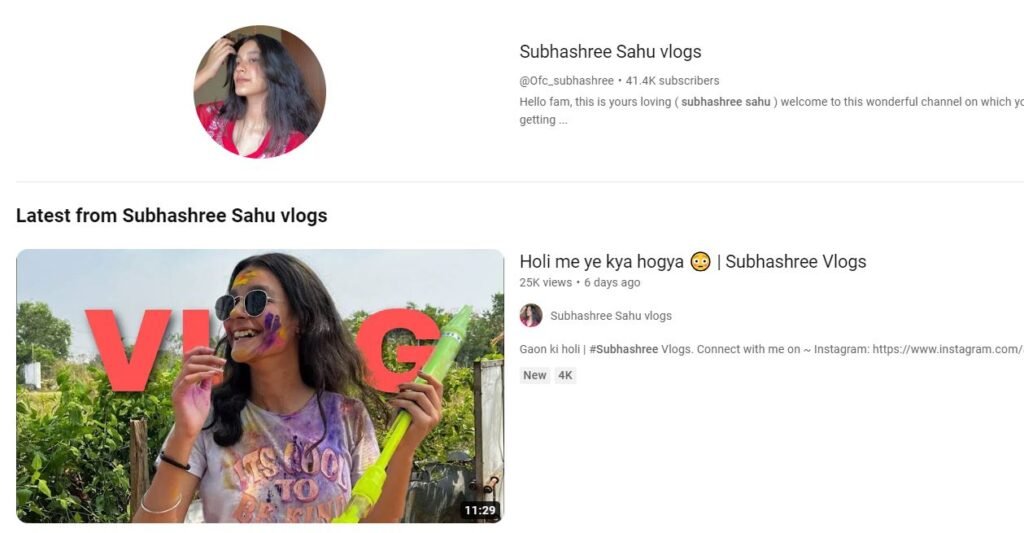Shocking! Leaked Subshree MMS Video: What You Need To Know
Is the digital age a double-edged sword, capable of both connection and catastrophic consequence? The case of "subshree mms" serves as a stark reminder of the vulnerabilities inherent in our hyper-connected world, where privacy can be fleeting and reputations can be irrevocably damaged by the casual click of a share button.
The viral spread of intimate content, often without consent, has become a disturbing hallmark of our times. The term "subshree mms," once likely a private piece of information, has, unfortunately, found its way into the public domain. It is a situation that demands a closer look at the forces at play: the technology that enables such breaches, the societal factors that exacerbate them, and, most importantly, the human cost.
The emergence of such incidents sparks a range of responses: from voyeuristic curiosity to genuine concern for the individuals affected. It necessitates a shift in how we perceive privacy, consent, and the permanence of digital information. The ramifications can be profound, impacting personal relationships, professional opportunities, and mental well-being. It's time to dissect the anatomy of this type of event and highlight the need for stricter regulations and broader societal awareness.
The complexities surrounding "subshree mms" extend beyond simple acts of malicious intent. The very architecture of the internet, with its emphasis on rapid information dissemination and user-generated content, can inadvertently create the conditions for such violations. Platforms often struggle to swiftly remove harmful content, and the anonymity afforded by the digital realm can embolden perpetrators. This is a complex issue that demands a nuanced approach and cannot be solved through simplistic solutions or quick fixes.
| Attribute | Details |
|---|---|
| Alleged Involvement | The term "subshree mms" is linked to the distribution of private content without consent. |
| Circumstances | Details surrounding the event remain largely speculative in the public domain due to the sensitivity of the matter and efforts to protect privacy. However, it is understood to involve non-consensual sharing of intimate material. |
| Legal Implications | Sharing private material without consent often constitutes a violation of privacy laws and can lead to criminal charges. |
| Ethical Considerations | The incident highlights the severe ethical implications of sharing intimate content without consent, including the potential for emotional distress, reputational damage, and exploitation. |
| Social Impact | The dissemination of such content can reinforce harmful societal norms around privacy, consent, and online behavior. It can also contribute to cyberbullying and harassment. |
| Platform Responsibility | Platforms hosting or enabling the spread of such content face a responsibility to take swift action to remove the content and to assist in the investigation of any associated violations. |
| Reference Website | Electronic Frontier Foundation (EFF) - This organization advocates for digital privacy and free speech, providing resources and analysis regarding online privacy and related legal issues. |
The legal frameworks governing online privacy are constantly evolving, and the rise of situations like "subshree mms" underscore the need for more robust regulations and enforcement. Laws must be clear and comprehensive, addressing issues of consent, data security, and platform liability. Furthermore, international cooperation is crucial to tackle the transnational nature of these issues, given the global reach of the internet.
Beyond legal ramifications, a culture shift is desperately needed. Society needs to move toward a greater understanding of consent, digital ethics, and the potential consequences of online actions. Education, starting from a young age, is paramount. Individuals need to be empowered with the knowledge and tools to protect their privacy, navigate online spaces responsibly, and report abuse when they encounter it.
The media also plays a significant role. Responsible reporting is essential, avoiding sensationalism and focusing on the ethical and legal aspects of these cases. Media outlets should avoid disseminating the content itself and emphasize the impact on the victims, while also contributing to public awareness and understanding.
The impact of such breaches extends far beyond the initial shock and outrage. Victims can suffer lasting psychological trauma, including anxiety, depression, and post-traumatic stress disorder. They may face social isolation, difficulty in forming new relationships, and even job loss. The potential for online harassment and bullying to continue long after the initial incident compounds the emotional toll.
The phenomenon of "revenge porn" is a close cousin of "subshree mms," where intimate images or videos are shared online as a means of revenge or to cause harm. This underscores the need for comprehensive legal and societal responses. The emotional and psychological impacts on victims can be devastating, leading to shame, humiliation, and severe emotional distress. Law enforcement agencies and legal systems must prioritize these cases, providing swift and effective remedies.
Digital forensics play a vital role in these investigations. Law enforcement needs specialized training and resources to track the source of leaked content, identify perpetrators, and gather evidence for prosecution. Data privacy and cyber security are crucial considerations in investigations as well, protecting the rights of victims and ensuring that evidence is handled securely and ethically.
The question of platform responsibility is paramount. Social media and hosting platforms must be held accountable for content that violates privacy and harms individuals. This includes implementing efficient reporting mechanisms, promptly removing offending material, and cooperating with law enforcement agencies. Platforms should also prioritize user safety and actively work to prevent such incidents from happening in the first place.
The ripple effects of these incidents can reach into the professional world. Victims may face reputational damage that impacts their employment prospects and career advancement. Employers need to create supportive environments where employees feel comfortable seeking help and reporting online harassment or abuse. Furthermore, online reputation management has become an essential skill set for individuals and organizations alike.
The legal landscape is continuously adapting to address the evolving challenges of online privacy. Existing laws, such as those addressing defamation, harassment, and stalking, can sometimes be applied to online incidents. However, specific legislation that directly addresses the non-consensual sharing of intimate content is also crucial. This legislation should cover various aspects, including the definition of consent, penalties for perpetrators, and procedures for content removal.
The concept of "digital footprints" is essential. Every piece of content shared online leaves a trace. Understanding the implications of the information you share is crucial. The potential permanence of content online underlines the importance of thinking carefully before posting anything, and of taking steps to manage your online presence. The potential for negative consequences can be significant.
Cyberbullying and online harassment are often associated with incidents like "subshree mms." Perpetrators may leverage the leaked content to harass, intimidate, and humiliate victims. Schools, workplaces, and communities need to foster environments that strongly condemn cyberbullying and offer support to those affected. The focus should be on creating a culture of respect and responsibility.
The impact of these incidents also underscores the importance of mental health support. Victims should have access to counseling and other mental health services to cope with the emotional trauma. Creating awareness of available resources and breaking down the stigma associated with seeking help is essential. Mental health professionals play a crucial role in providing care and helping individuals recover.
The digital divide can also exacerbate the impact of incidents like "subshree mms." Individuals without access to technology or digital literacy skills may be more vulnerable to online exploitation and harassment. Addressing the digital divide through education, training, and providing access to essential technologies is critical. This will help to ensure that everyone has the opportunity to navigate the online world safely and responsibly.
The concept of consent is the bedrock of all interactions, both online and offline. The absence of consent makes any sharing of private information unethical and illegal. Raising awareness about consent, promoting healthy relationships, and challenging harmful societal norms are essential. Education campaigns can help to promote a broader understanding of consent and reduce instances of non-consensual sharing.
Finally, the story of "subshree mms," and similar instances, must serve as a catalyst for change. It's a call to action for individuals, technology companies, lawmakers, and society as a whole. It is a pivotal moment to acknowledge the profound impact of the digital age and to develop a collective response that protects privacy, upholds ethical standards, and ensures a safer, more responsible online environment for everyone.


